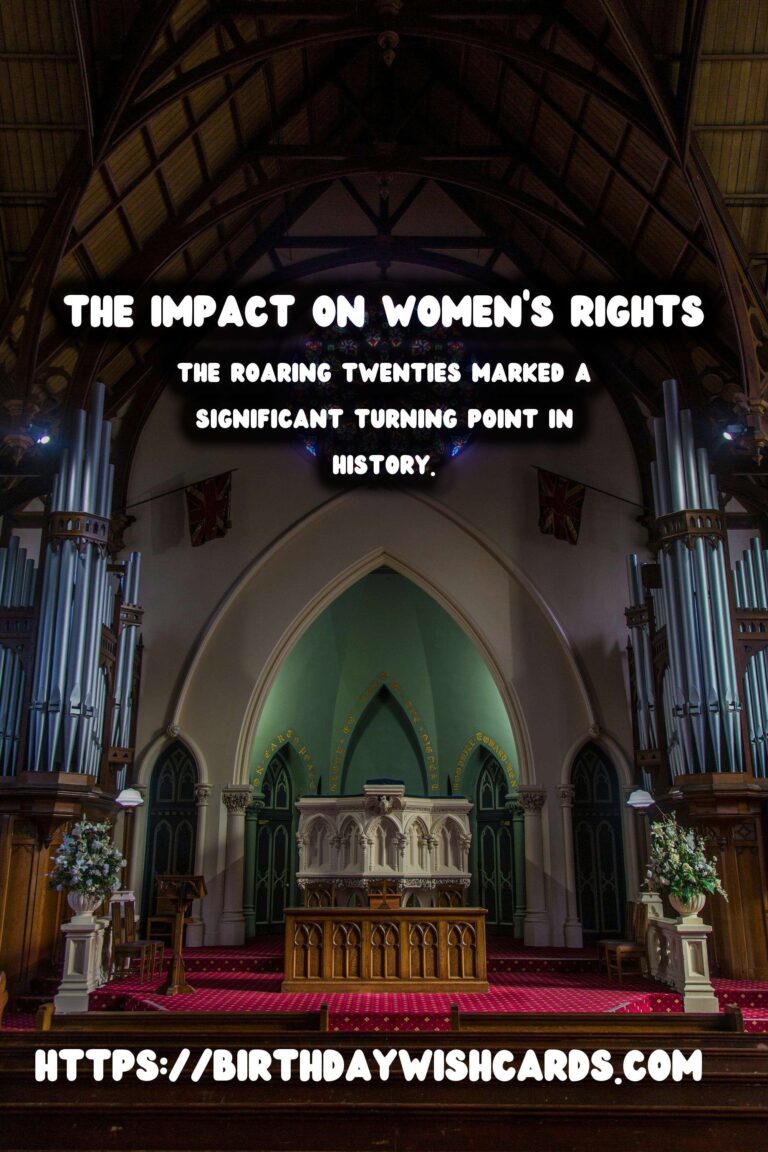
The Roaring Twenties marked a significant turning point in history, not only defined by its economic prosperity and cultural developments but also its profound impact on the rights and lives of women. This era, infused with a spirit of liberation and rebellion, laid the groundwork for social changes that would influence women’s status for decades to come.
The Historical Context
The 1920s followed the destruction and upheaval of World War I, during which many women stepped into roles traditionally held by men. As the war ended, so did these roles. However, the taste of independence and responsibility left many women unwilling to return entirely to their previous societal confines.
The United States in particular was buzzing with a new cultural movement as jazz clubs, flappers, and speakeasies became part of mainstream society, reflecting a broader push against the norms of Prohibition and traditional values.
The Suffrage Movement and Beyond
In 1920, the passage of the 19th Amendment granted women the right to vote in the United States, a triumph that was the result of tireless efforts by suffragists over several decades. This newfound political power offered women a stronger voice in public affairs, and many began to push for broader gender equality.
Women used their voting power to advocate for laws and policies that would improve their social and economic status. This was a period marked by increased activism as women began to challenge the restrictive conventions of their time more rigorously.
The Cultural Revolution
The Roaring Twenties were characterized by cultural liberation, and women were at the forefront of this change. The image of the flapper, with her bobbed hair, shorter skirts, and penchant for jazz music, represented a new kind of independence and extravagance. Women began working more frequently outside the home, pushing the boundaries of what was considered acceptable behavior and attire.
This cultural shift not only challenged women’s roles but also reshaped the social environment, influencing the arts, literature, and entertainment. This era sparked a conversation over gender roles, and though not all Americans welcomed these changes, the momentum was palpable.
Economic Independence
During the 1920s, more job opportunities became available to women, especially in cities. Whether in factories, offices, or retail, employment allowed women to gain financial independence and an enhanced social standing.
Though still facing wage disparity and limited career advancement, the employment landscape began to reflect gradual change that later generations would continue to revolutionize. The economic contributions of women during this period began setting the stage for a more gender-inclusive workforce in the future.
Challenges and Limitations
Despite the progress gained, the 1920s also highlighted the problems that still persisted. Racial and ethnic minority women, along with those from lower socio-economic backgrounds, often found themselves excluded from many of the strides being celebrated.
Furthermore, many societal norms remained deeply ingrained, and significant portions of the population resisted the changing roles of women. These tensions underscored the complexity of the women’s rights movement, emphasizing that while the 1920s was a time of progress, there was still much work ahead.
Legacy of the Roaring Twenties
The impacts of the Roaring Twenties on women’s rights are undeniable. This decade laid the foundations for future advancements in gender equality. The societal changes opened doors that subsequent generations of women would walk through, continuing to advocate for equal rights and opportunities.
Women today owe much to the activists, suffragists, and everyday women of the 1920s who challenged the norms and persisted in their fight for equality. Their legacies continue to resonate, reminding us of the power of advocacy and resilience in the ongoing journey toward gender equality.
The Roaring Twenties marked a significant turning point in history. This newfound political power offered women a stronger voice in public affairs. 

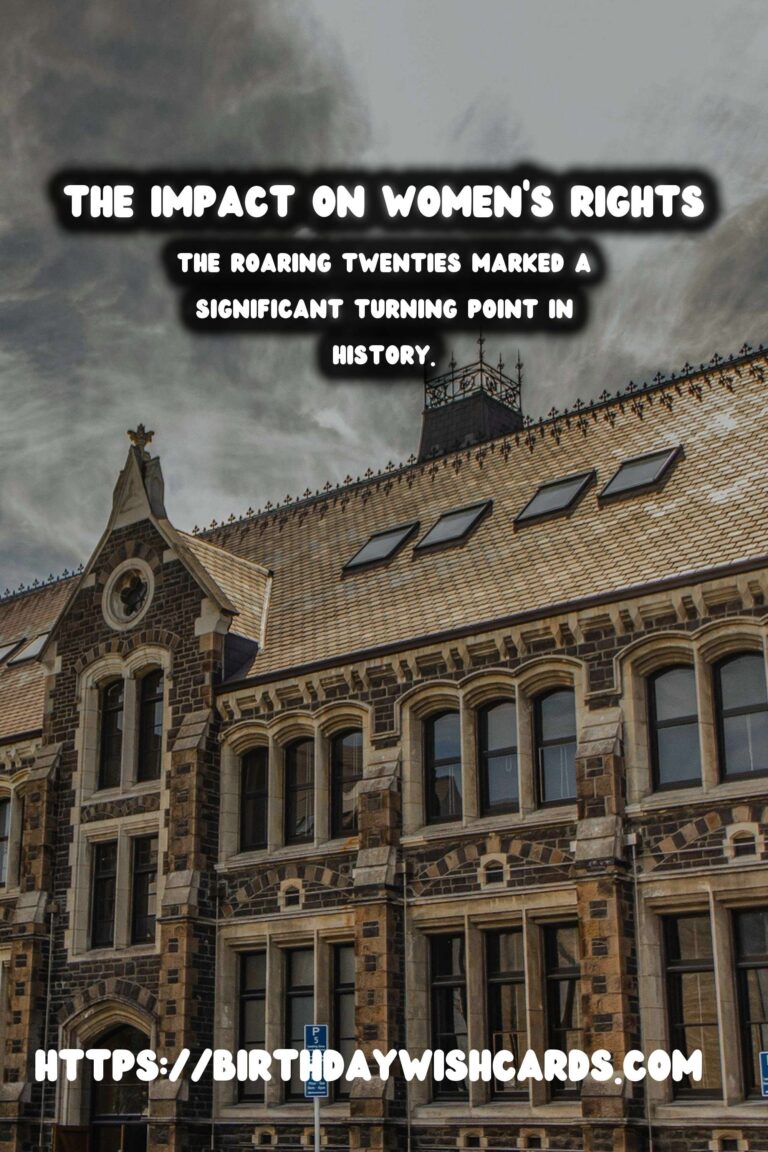
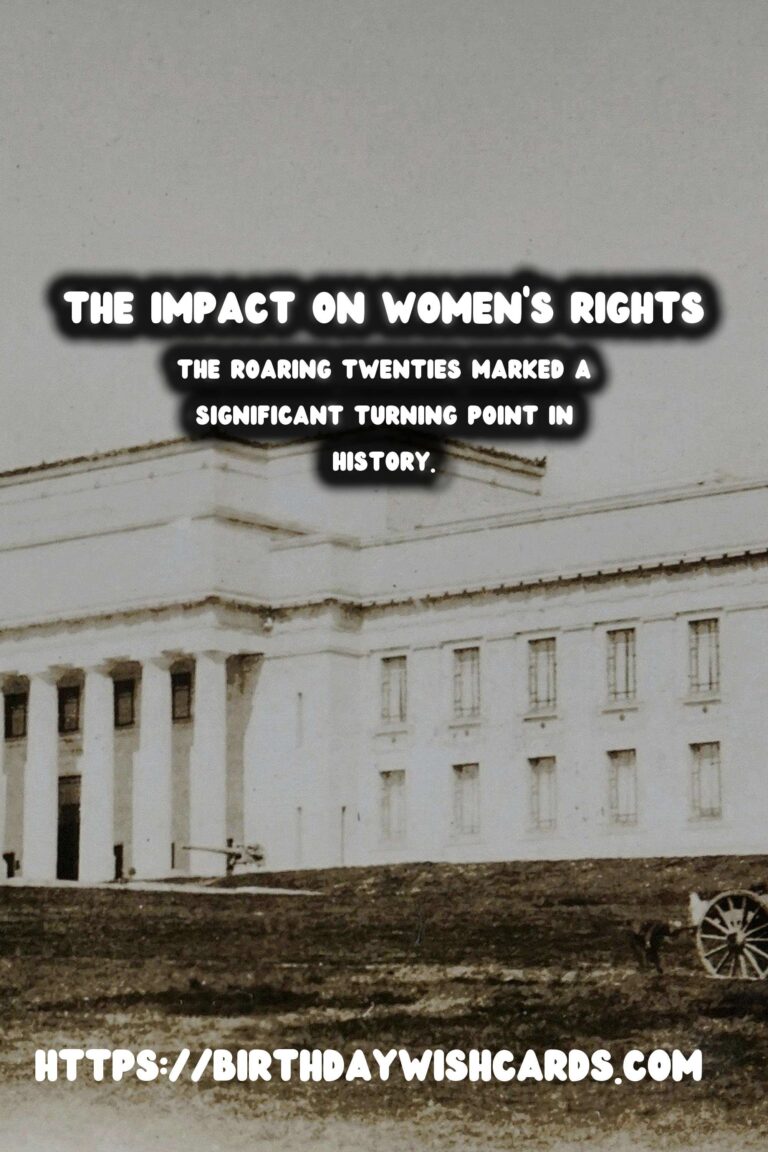
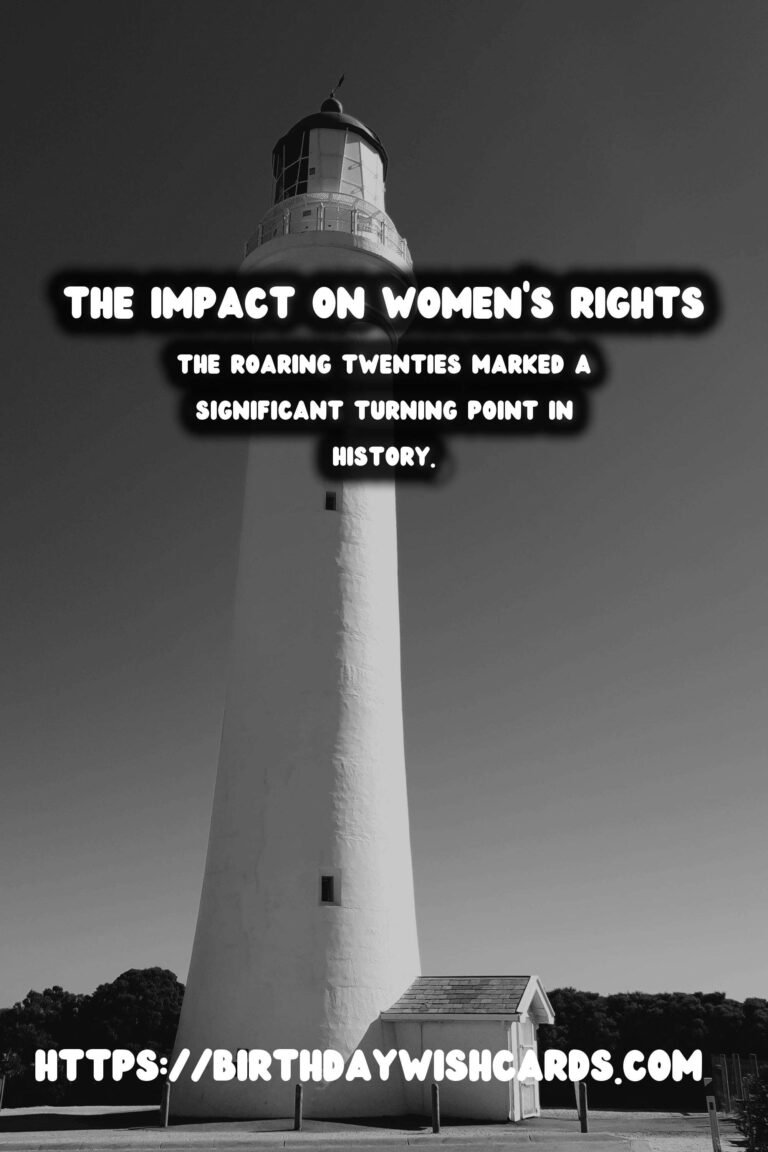

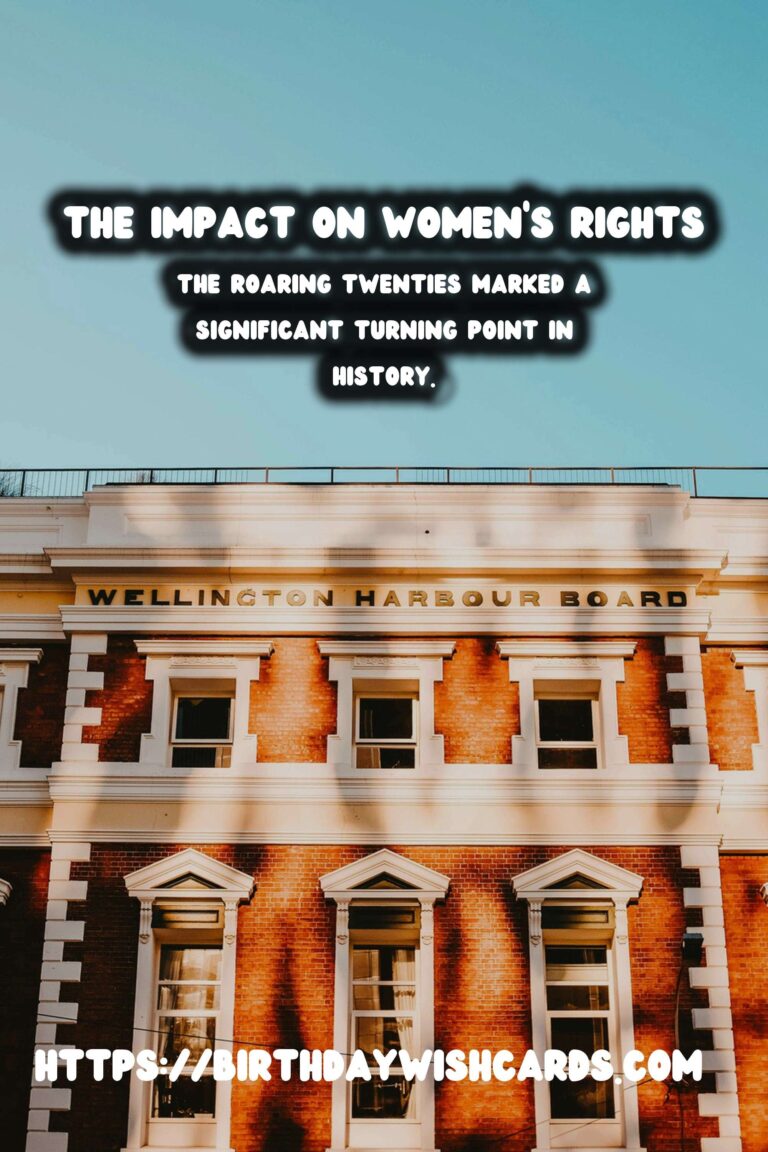



#WomensRights #RoaringTwenties




